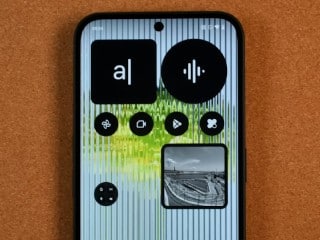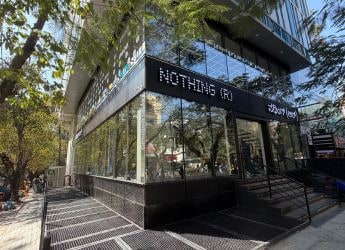- Home
- Transportation
- Transportation News
- Virgin Hyperloop Hosts First Human Ride on Levitating Pod System
Virgin Hyperloop Hosts First Human Ride on Levitating Pod System
In a hyperloop system, a trip between New York and Washington would take 30 minutes, four times faster than a high-speed train.

Branson's Virgin Hyperloop has previously run over 400 tests without human passengers at the Nevada site
Richard Branson's Virgin Hyperloop has completed the world's first passenger ride on a super high-speed levitating pod system, the company said on Sunday, a key safety test for technology it hopes will transform human and cargo transportation.
Virgin Hyperloop executives Josh Giegel, its Chief Technology Officer, and Sara Luchian, Director of Passenger Experience, reached speeds of up to 107 miles per hour (172 km per hour) at the company's DevLoop test site in Las Vegas, Nevada, the company said.
"I had the true pleasure of seeing history made before my very eyes," said Sultan Ahmed Bin Sulayem, Chairman of Virgin Hyperloop and Group Chairman and Chief Executive of DP World.
Los Angeles-based Hyperloop envisions a future where floating pods packed with passengers and cargo hurtle through vacuum tubes at 600 miles an hour (966 kph) or faster.
In a hyperloop system, which uses magnetic levitation to allow near-silent travel, a trip between New York and Washington would take just 30 minutes. That would be twice as fast as a commercial jet flight and four times faster than a high-speed train.
The company has previously run over 400 tests without human passengers at the Nevada site.
The test comes a month after Reuters first reported that Virgin Hyperloop picked the US state of West Virginia to host a $500 million (roughly Rs. 3,700 crores) certification centre and test track that will serve as a proving ground for its technology.
The company is working toward safety certification by 2025 and commercial operations by 2030, it has said.
Canada's Transpod and Spain's Zeleros also aim to upend traditional passenger and freight networks with similar technology they say will slash travel times, congestion and environmental harm linked with petroleum-fueled machines.
© Thomson Reuters 2020
Which is the best TV under Rs. 25,000? We discussed this on Orbital, our weekly technology podcast, which you can subscribe to via Apple Podcasts, Google Podcasts, or RSS, download the episode, or just hit the play button below.
Get your daily dose of tech news, reviews, and insights, in under 80 characters on Gadgets 360 Turbo. Connect with fellow tech lovers on our Forum. Follow us on X, Facebook, WhatsApp, Threads and Google News for instant updates. Catch all the action on our YouTube channel.
Related Stories
- Samsung Galaxy Unpacked 2026
- iPhone 17 Pro Max
- ChatGPT
- iOS 26
- Laptop Under 50000
- Smartwatch Under 10000
- Apple Vision Pro
- Oneplus 12
- OnePlus Nord CE 3 Lite 5G
- iPhone 13
- Xiaomi 14 Pro
- Oppo Find N3
- Tecno Spark Go (2023)
- Realme V30
- Best Phones Under 25000
- Samsung Galaxy S24 Series
- Cryptocurrency
- iQoo 12
- Samsung Galaxy S24 Ultra
- Giottus
- Samsung Galaxy Z Flip 5
- Apple 'Scary Fast'
- Housefull 5
- GoPro Hero 12 Black Review
- Invincible Season 2
- JioGlass
- HD Ready TV
- Latest Mobile Phones
- Compare Phones
- Tecno Pova Curve 2 5G
- Lava Yuva Star 3
- Honor X6d
- OPPO K14x 5G
- Samsung Galaxy F70e 5G
- iQOO 15 Ultra
- OPPO A6v 5G
- OPPO A6i+ 5G
- Asus Vivobook 16 (M1605NAQ)
- Asus Vivobook 15 (2026)
- Brave Ark 2-in-1
- Black Shark Gaming Tablet
- boAt Chrome Iris
- HMD Watch P1
- Haier H5E Series
- Acerpure Nitro Z Series 100-inch QLED TV
- Asus ROG Ally
- Nintendo Switch Lite
- Haier 1.6 Ton 5 Star Inverter Split AC (HSU19G-MZAID5BN-INV)
- Haier 1.6 Ton 5 Star Inverter Split AC (HSU19G-MZAIM5BN-INV)







![[Partner Content] OPPO Reno15 Series: AI Portrait Camera, Popout and First Compact Reno](https://www.gadgets360.com/static/mobile/images/spacer.png)









